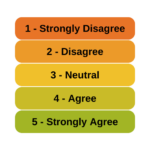 Multilevel and Mixed models are essentially the same analysis. But they use different vocabulary, different notation, and approach the analysis considerations in different ways.
Multilevel and Mixed models are essentially the same analysis. But they use different vocabulary, different notation, and approach the analysis considerations in different ways.
(more…)
TAF Support
Member Training: Translating Between Multilevel and Mixed Models
Member Training: Introduction to Stata Software Tutorial
 In this 8-part tutorial, you will learn how to get started using Stata for data preparation, analysis, and graphing. This tutorial will give you the skills to start using Stata on your own. You will need a license to Stata and to have it installed before you begin.
In this 8-part tutorial, you will learn how to get started using Stata for data preparation, analysis, and graphing. This tutorial will give you the skills to start using Stata on your own. You will need a license to Stata and to have it installed before you begin.
Member Training: Analyzing Likert Scale Data
 Is it really ok to treat Likert items as continuous?
Is it really ok to treat Likert items as continuous?  And can you just decide to combine Likert items to make a scale? Likert-type data is extremely common—and so are questions like these about how to analyze it appropriately. (more…)
And can you just decide to combine Likert items to make a scale? Likert-type data is extremely common—and so are questions like these about how to analyze it appropriately. (more…)
Member Training: A Gentle Introduction to Bootstrapping
 Bootstrapping is a methodology derived by Bradley Efron in the 1980s that provides a reasonable approximation to the sampling distribution of various “difficult” statistics. Difficult statistics are those where there is no mathematical theory to establish a distribution.
Bootstrapping is a methodology derived by Bradley Efron in the 1980s that provides a reasonable approximation to the sampling distribution of various “difficult” statistics. Difficult statistics are those where there is no mathematical theory to establish a distribution.
Member Training: Assumptions of Linear Models
 What are the assumptions of linear models? If you compare two lists of assumptions, most of the time they’re not the same.
What are the assumptions of linear models? If you compare two lists of assumptions, most of the time they’re not the same.
(more…)
Member Training: Analyzing Pre-Post Data
 Recommendations on how to analyze pre-post data can vary. Typical recommendations include regression analysis or matched pairs analysis for within subject studies and analysis of covariance (ANCOVA) or linear mixed effects model analysis for within and between subject studies.
Recommendations on how to analyze pre-post data can vary. Typical recommendations include regression analysis or matched pairs analysis for within subject studies and analysis of covariance (ANCOVA) or linear mixed effects model analysis for within and between subject studies.
(more…)
